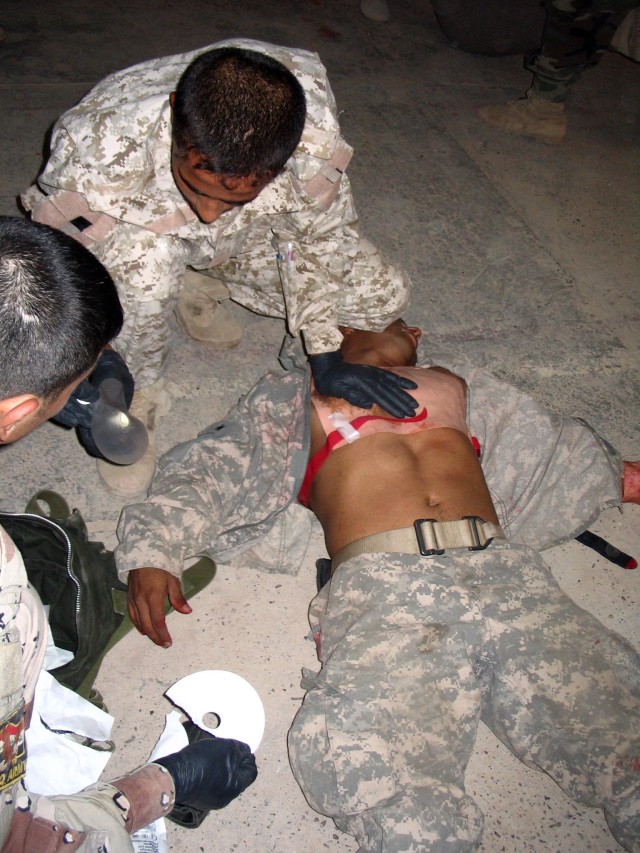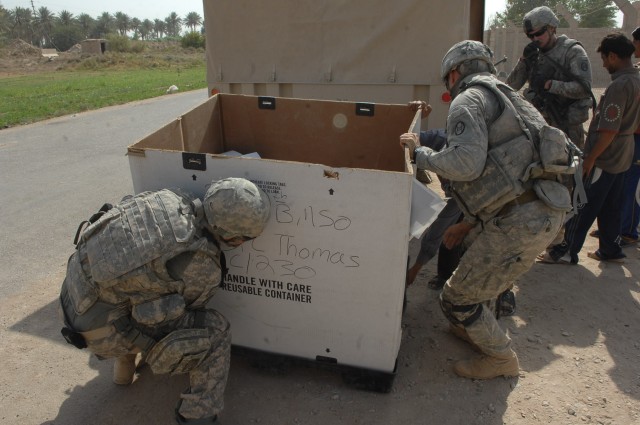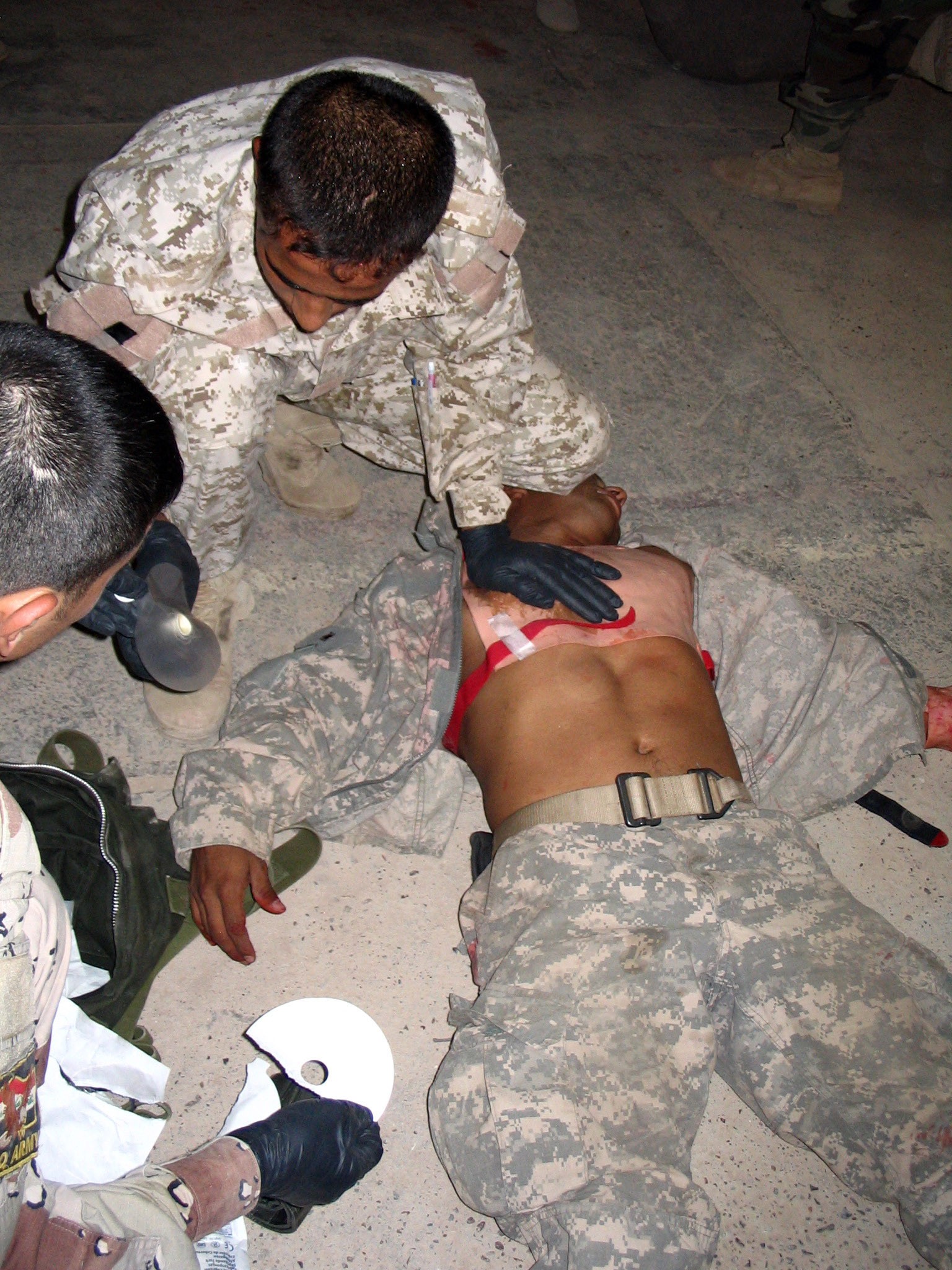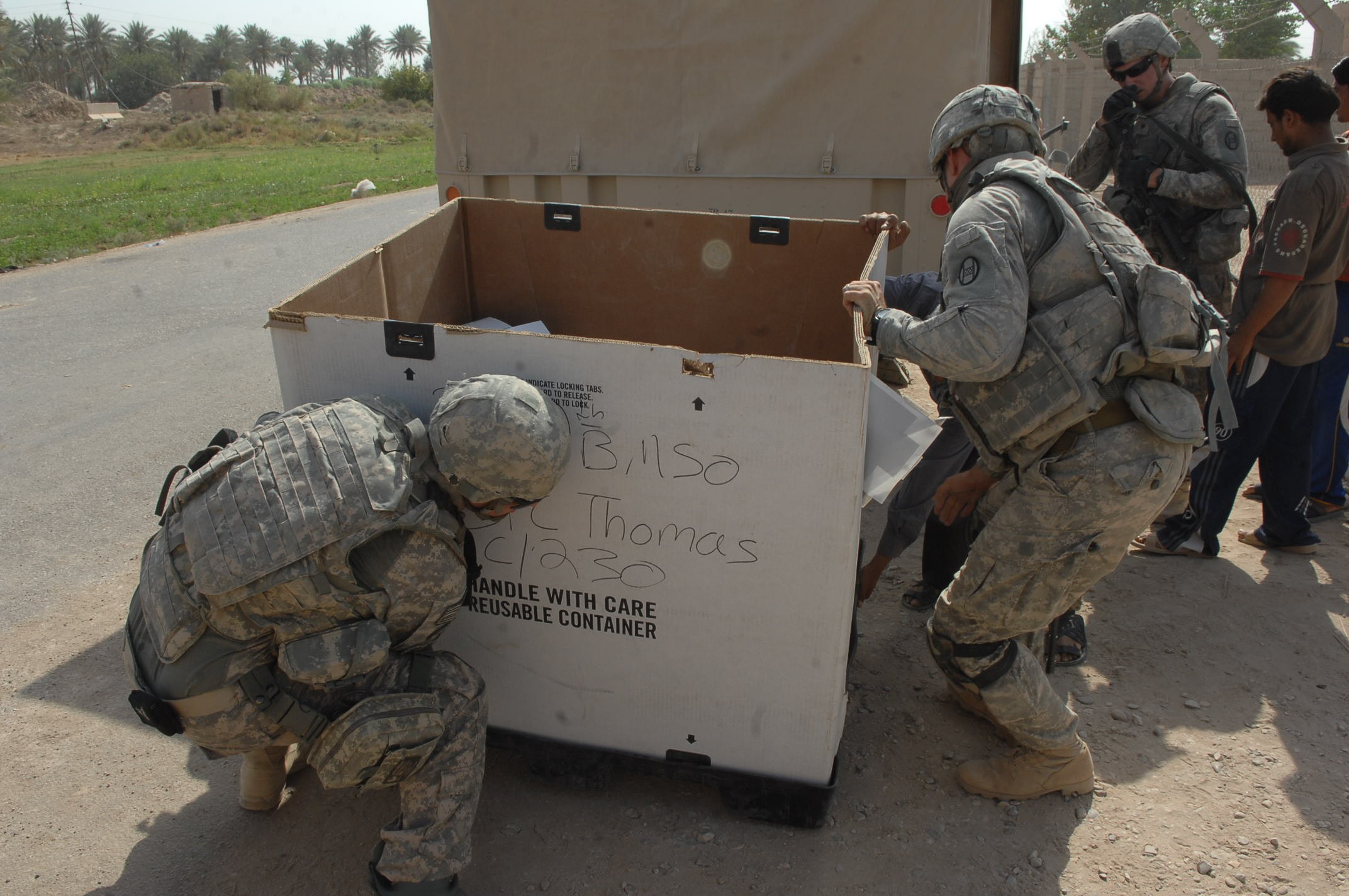Multi-National Corps-Iraq Surgeon Col. Dallas W. Homas and his office are partnering with members of the Iraqi Ministry of Health and Iraqi Ground Forces Command to improve medical capabilities of Iraqi military and civilian physicians.
"You think about security being the overarching umbrella that keeps everything going in Iraq and as we transition out of the cities and security is more and more falling on the shoulders of the Iraqi Security Forces, what is it that enables any uniformed person to walk out there in harm's way'" Homas said. "Same for them as it is for us, we think that if we get injured in the line of duty, that somebody's going to come up help us and save our lives."
The senior medical advisor to both Multi-National Force-Iraq and MNC-I commanding generals aid he believes loyalty and competency will be enhanced in the Iraqi Army if the soldiers know they are going to be cared for on the battlefield.
"At the Corps level our primary partnering focus with the IGFC is to help them develop a competent health care system for the Iraqi Army," Homas said.
Within the surgeon's office there is a cell dedicated to partnering with the IGFC. Lt. Col. Robert Maxham is the U.S. Army advisor to the IGFC surgeon with whom he meets several days a week.
"I train and work with him on surgeon's staff taskings such as maintaining accountability oversight of subordinate units and manning capabilities" Maxham said.
The Corps Surgeon office is working through the transition teams to address the issues of medical logistical management and distribution.
"The few doctors that do exist in the IGFC reach for a gauze sponge to treat a patient and it's not there," Homas said. "The sponge is in an Iraqi warehouse."
The teams provide assessments on the medical capabilities within their respective areas as well as class eight supply issues.
"I believe the transition teams on the ground are instrumental to the partnership process," Maxham said.
"One of the most common issues is that the clinics don't know how to order Class VIII (medical) supplies and monitor their request," he added. "The IGFC and division level health care providers are working hard; they want to see their medical system improve."
Homas said organizing the warehouse, inventorying the supplies and distributing them to the troops will be a major step forward in enhancing the development of a competent healthcare system for the Iraqi Army.
On the civil capacity side, the MNC-I surgeon is coordinating the efforts of the corps assets.
"My goal is to focus (them) into a unified effort across Iraq that attempts to service stated priorities of the ministry of health," Homas explained.
He said the number one priority of the MOH was to decrease infant mortality in Iraq. One of the goals of the partnership is to address the issue in every nationwide engagement with civilian leaders and medical professionals.
"Another of the objectives of the government of Iraq was to enhance the status of women in society," he added. "I melded those two together and suggested we do a national-level midwife program."
In a very physician centric health care system there are few physician assistants, and a nearly nonexistent nursing program. Midwifes, however, are accepted in Iraq because they are seen as helping women fulfill the traditional role of having babies, Homas said.
Division surgeons are now armed with a course of instruction on midwifery. They are ready to work with 20 or 30 women from an Iraqi village to greatly increase the percentage of live births.
"In that way I can get after one of the governmental level priorities, with a medical focus, dispersed nationally," Homas said.
Previous civil capacity engagements have been high energy advanced techniques but unfortunately many physicians don't have the medical logistic capabilities to carry out procedures such as advanced laparoscopic surgery, he said.
"I want sustainability, I want to get after government-level programs," Homas stressed.
The surgeon's office has also begun working with the Iraqi business program to have women become potters to make clay pot water filtration systems for home use.
"Diarrheal diseases are thought to cause upward of 50 percent of infant mortality," said Homas.
Even though there have been many clean water programs through the ministry of water and supported by the corps of engineers, clean water remains an issue, he said.
"What we were finding was that the water treatment plants were being built and the water distribution was being laid, but it wasn't getting out to the individual house," he said. "People were tapping into the line to get water which resulted in contamination. "
Even though combat forces have withdrawn from the cities, U.S. physicians are still engaged with the Tikrit Teaching Hospital. Iraqi physicians continue to partner with military doctors in Balad and around the country. Health care remains an important part of U.S. forces partnership with Iraq as they draw down.
"I truly admire the Iraqi doctors, when you think of what they face on a daily basis, the trauma, the bombs, the injuries," Homas said.
"Virtually all of the Iraqi doctors I meet are passionate about doing their job and wanting to do it better. They know what right looks like and they are willing to fight and scratch their way there."




Social Sharing